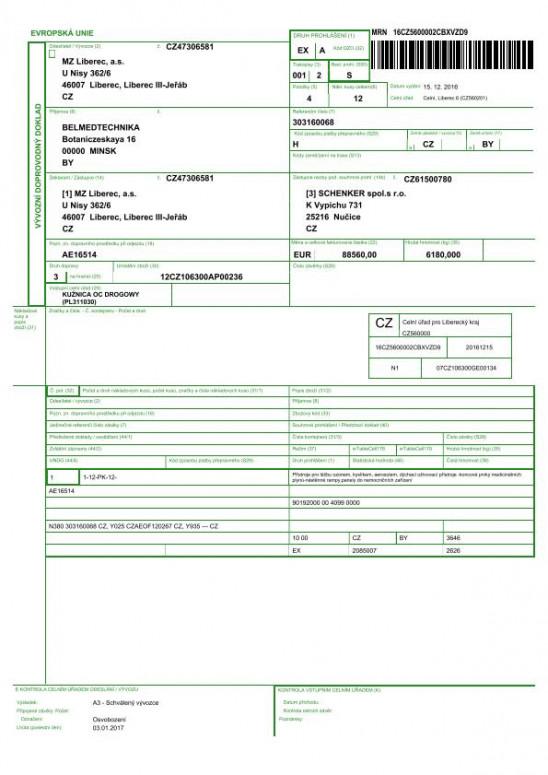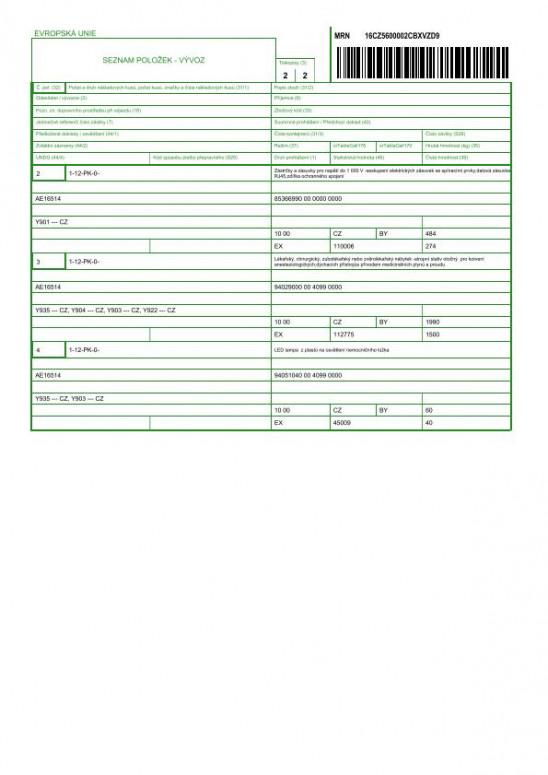Our investigators laid their hands on some documents which concern a tender in 2016 for console modules for medical gases delivery systems procurement.
.png)
This equipment is used when a patient needs to be put on O2.
“Medtechnika”, a company from Grodno and a subsidiary of “Belmedtechnika”, which happened to organise the tender, eventually won the tender. The company proposed a higher cost than their competitor from abroad, which also adds on delivery expenses and customs clearance fees.
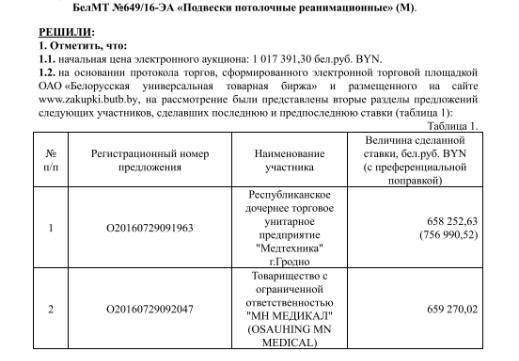
The subsidiary of “Belmedtechnika” owes its winning to the preferential amendment of 15%.
.jpg)
In reality it looked like the order of 342.000 euro was redirected to another subsidiary of “Belmedtechnika” - “Servisnyi centr”. This might have happened because in 2015 “Belmedtechnika” signed an agreement with “Medtechnika” from Grodno, where one of the contract terms said that “Medtechnika” from Grodno should conduct procurement, while “Servisnyi centr” does all the job.
-1.jpeg)
Prior to the deal the director of “Servisnyi centr” Aleh Shved emailed to the Czech medical equipment manufacturer “MZ Liberec a.s.” the following: “Affiliate “Servisnyi centr” was chosen as the winning bidder on supplying 32 resuscitation modules. In this connection I hereby ask you to begin production of the components in accordance with the technical document sent provisionally.”

The components supply contract cost 240.000 euro, which means that two thirds of the funds allocated by the state budget were sent abroad.
.jpg)
But that was not the point. The documents from the tender that were found by our journalists included customs codes for the delivered components.

According to the codes, those were not entirely components but some furniture and equipment plus sockets and lamps.
Market players that are responsible for “MZ Liberec a.s.” medical equipment supplies said that Czechs provide “not components but large-unit equipment”. “Maximum one can do to refine it is to put it up. But it is impossible to improve its settings”, - explained there.
However, the management of the Czech company and “Servisnyi centr” have another point of view.
The Director of “MZ Liberec a.s.” Martin Hayek claims that their Belarusian partner is a real producer, while Czech provide it with components alone. Hayek even emphasised that “Servisnyi centr” further developed the equipment.
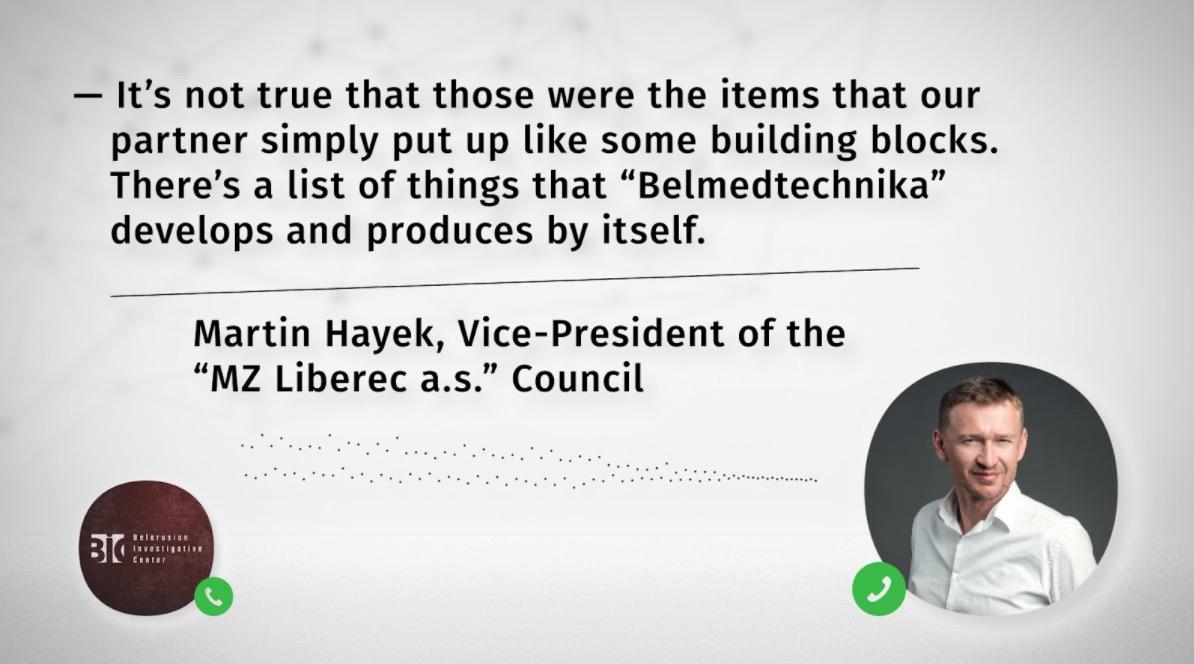
Aleh Shved echoes Martin Hayek saying that their company produces everything by itself. “We have never bought finished products. We only buy components.”
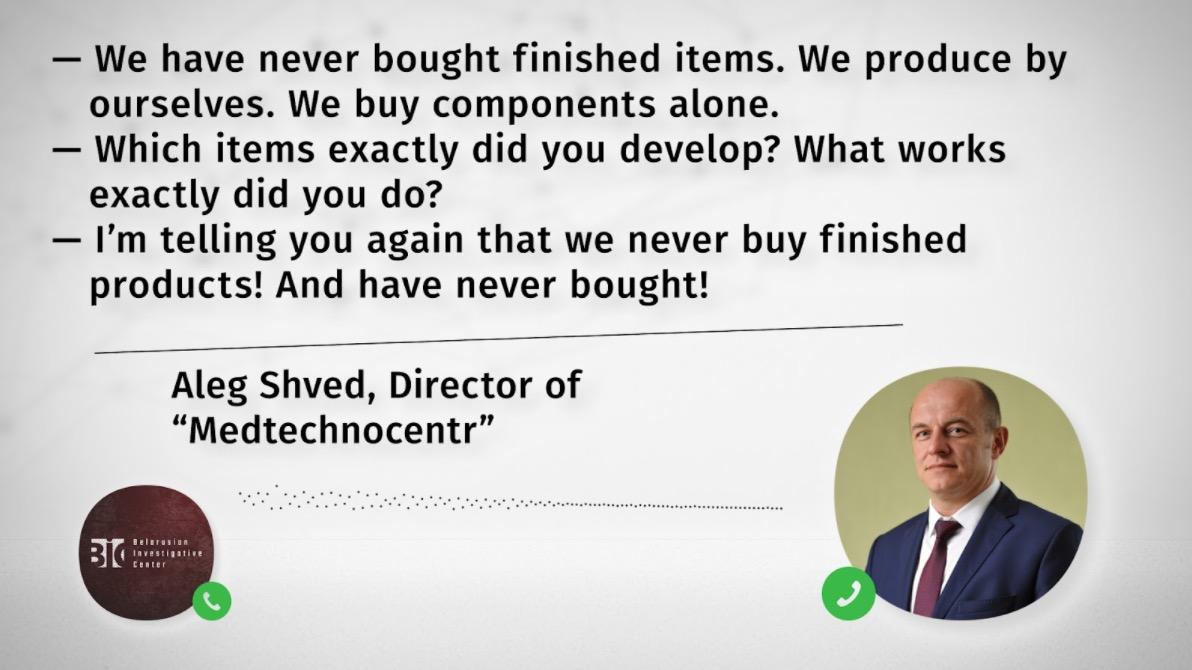
But when our journalists asked Aleh Shved to clarify what exactly his company developed in the equipment, he said that without the papers he couldn’t explain. So the journalists agreed to call him the next day, but the conversation didn’t happen neither then nor later.
Aleh Shved plays an important role in this story. He is Andrey’s Shved, current Attorney General of Belarus, brother. Coincidentally, their careers soared almost at the same time.
Andrei Shved moved to Minsk from the Mogilev region in the 2000s and became a deputy prosecutor. According to his ex-colleagues, he “was known as a righteous man”. At that time he even actively participated in investigations about the disappearance of Lukashenka’s political opponents. But in 2006 Andrei Shved became the Chief of legal department of the Security Council, where Aleksandr Lukashenko and his eldest son Viktar ruled the roost. Right then Andrei Shved magically transformed. As shown in Social Protection Fund database, which was leaked by Cyber Partisans, approximately in 2007 Andrei’s Shved salary multiplied. By 2008 his monthly wage was 5500 dollars.
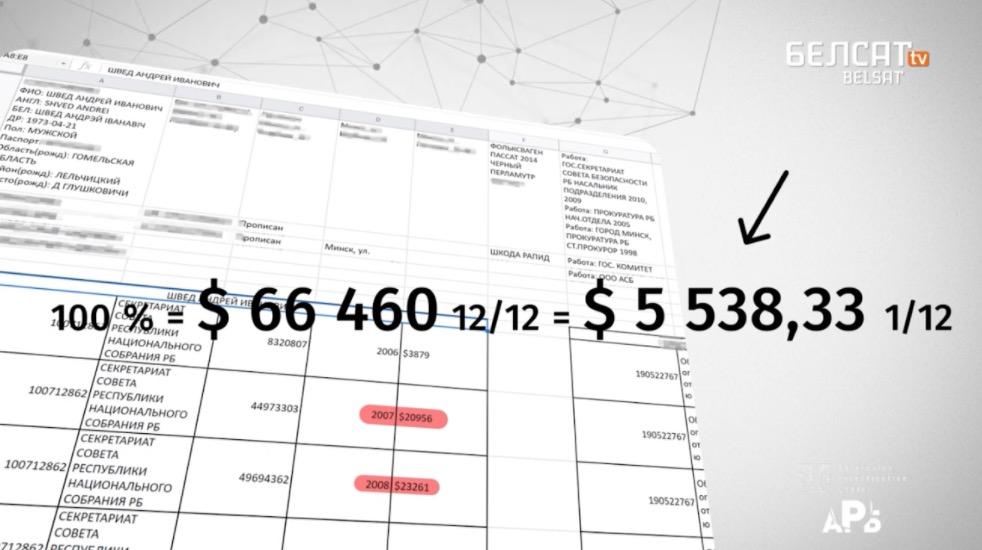
In 2020 he was appointed Deputy Attorney General, and in 2011 he ran the case of an explosion in the subway. Two people, Kavalyou and Kanavalou, were sentenced to death penalty, although their guilt hadn’t been proved. Then 38 year old Andrei Shved became the youngest general ever and received the award of order “For the Service to the Fatherland”.
In 2011 Andrei Shved for his service received a piece of land in Minsk, where he built a house worth 600.000 dollars. By that time his younger brother Aleh Shved had moved to Minsk too. Aleh worked in the Petrikov hospital until 2009, then in the local executive committee. Once he moved to Minsk, he started work in the Ministry of agriculture. Same like his brother, Aleh Shved improved his career real quick - he soon became General Director of “Servisnyi centr” and he got his salary multiplied.
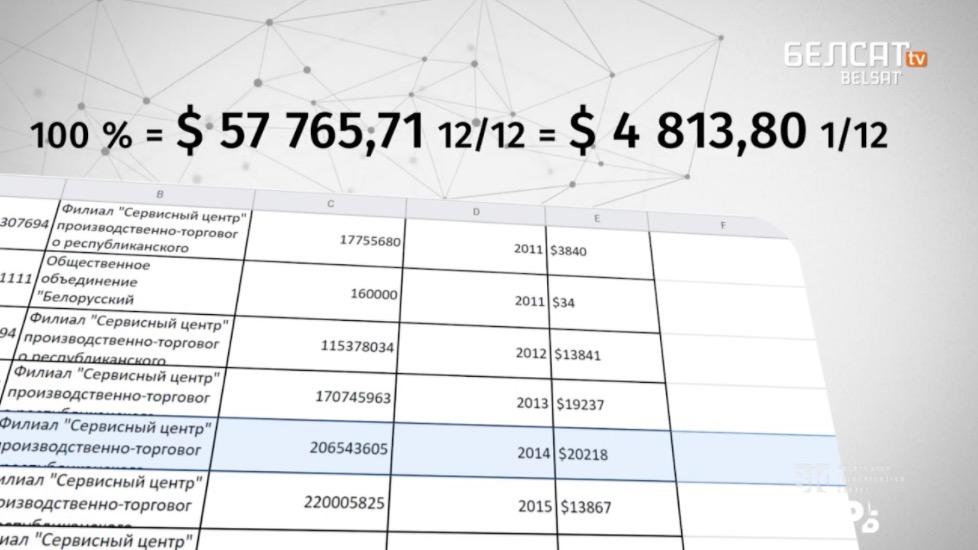
Anzhela Raemskaya, the eldest sister of the two brothers, has been working as Deputy Chairman of the Logoysk Executive Committee for a long time.

And her son, Yaugen Raemski, started work for Aleh Shved and received a position of the Head of the department.
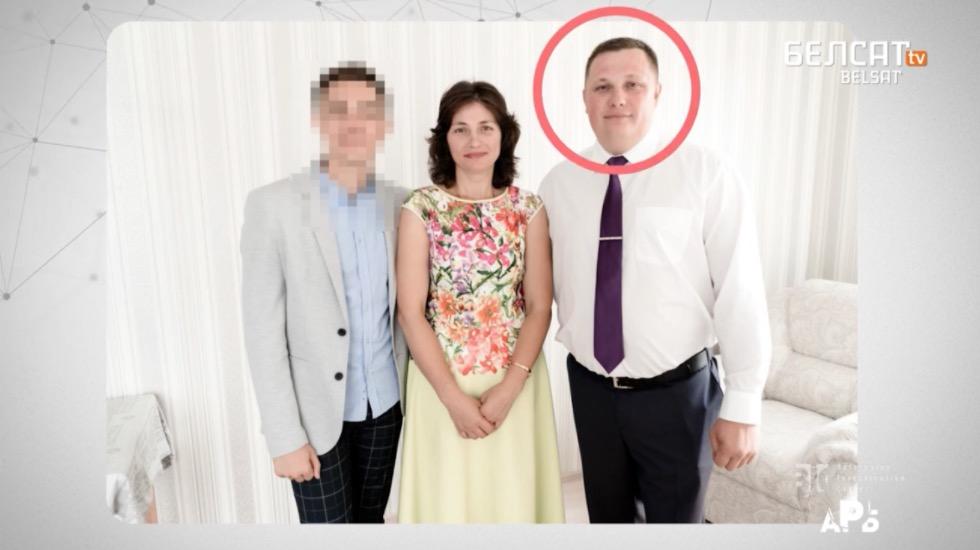
Although in his first year there he managed to make only 13.000 dollars, the next year he could afford to buy himself a property in Minsk, worth 80.000 dollars.
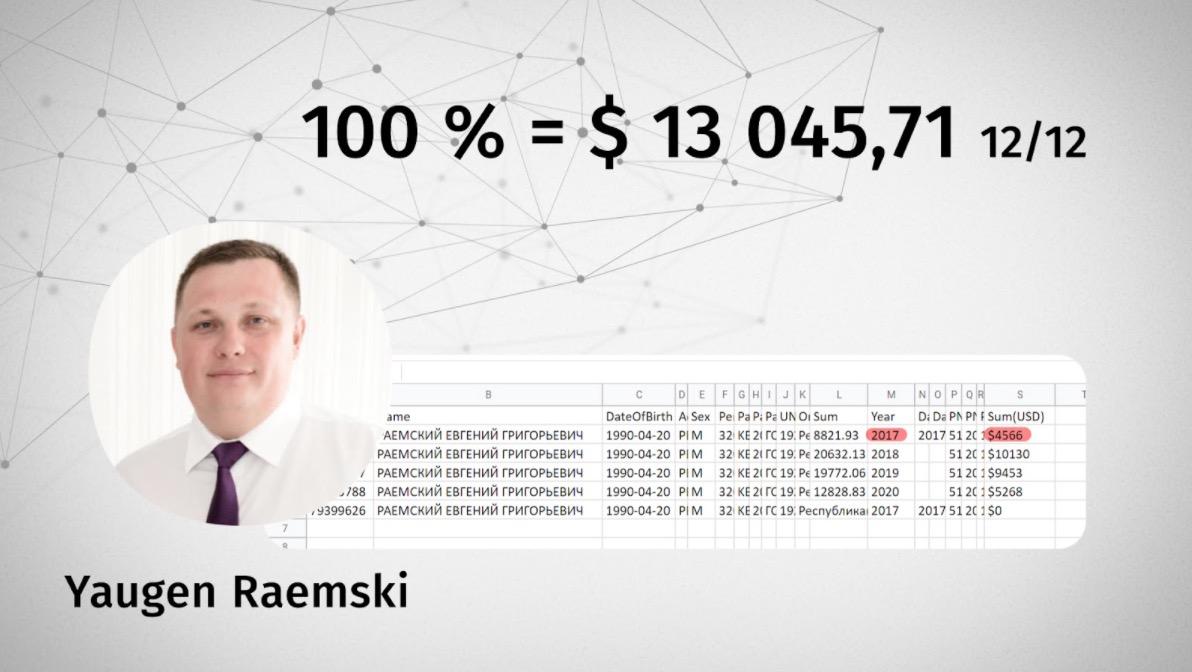
Interestingly, our investigators were not able to find any legal source of the income to cover the expenses.
In 2017 “Servisnyi centr” was redesignated into “Medtechnocentr”, which was then no longer “Belmedtechnika” subsidiary. A year later “doctor’s plot” case broke out and that exposed all the corruption schemes for procurement of medical equipment and medications. Hundreds of people got arrested from medical officials to doctors and suppliers. For instance, in 2020 ex general director of “Belmedtechnika” Alyaksandar Sharak was sentenced to 6,5 years in prison for receiving grand bribes.
Anyway, it is believed that Vasil Zharko, ex Minister of Healthcare, is closely connected with the corruption scheme system in Belarus. Media say that he is Mikalay’s Lukashenka godfather.
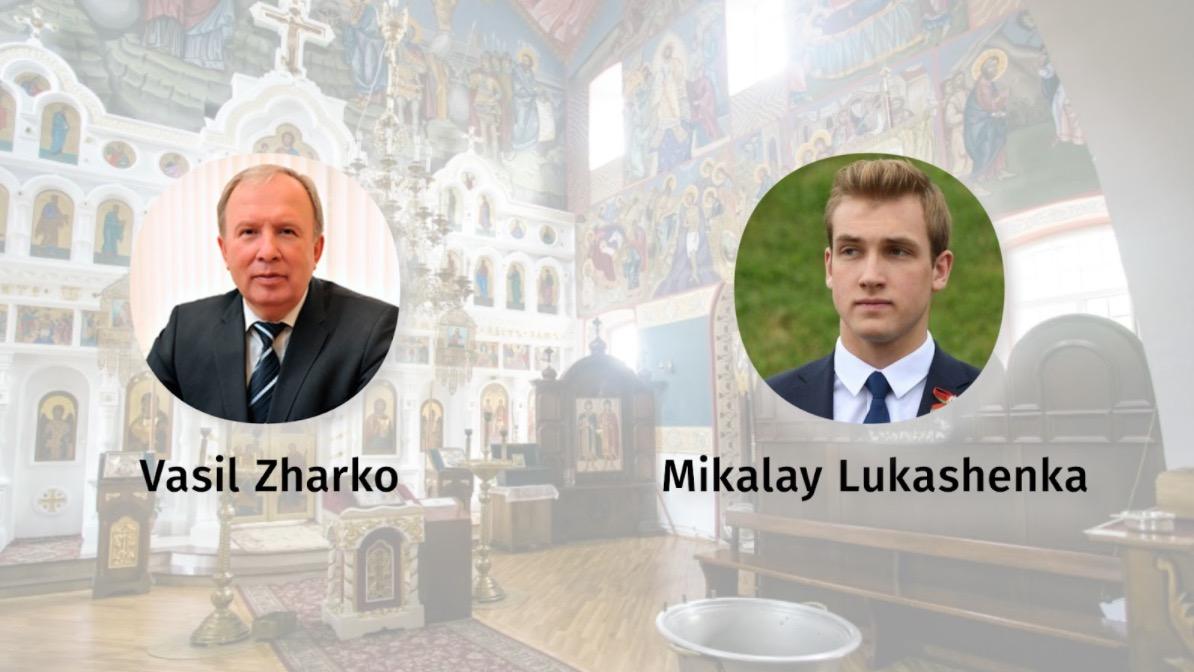
No-one but Zharko worked together with Luydmila Pastayalka and, when she died, was the Head of the Ministry of Healthcare for 11 years. He lost his seat of Deputy Prime Minister during the “doctor’s plot” clearance, although remained at large. Zharko’s deputy Igar Lasitskiy, who was the Chairman of the tender mentioned above, got less lucky.
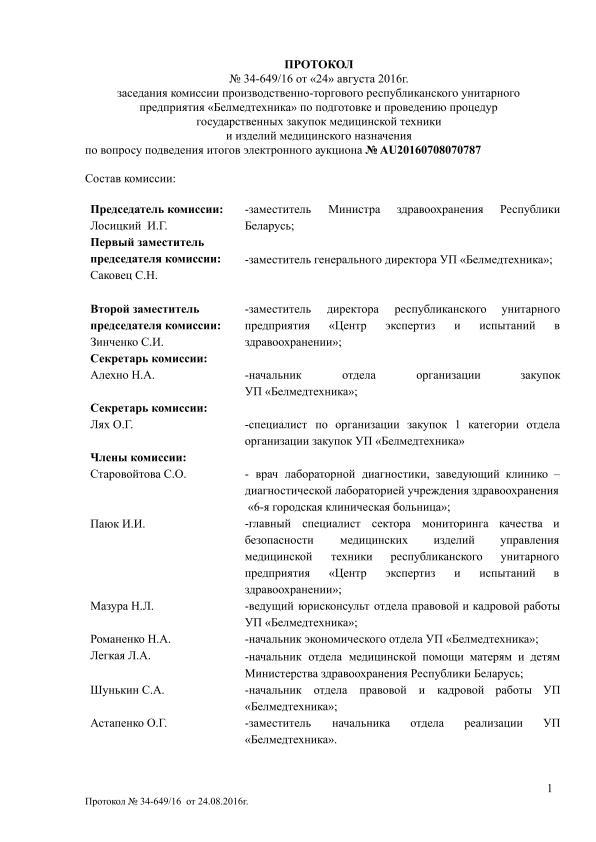
He issued a registration certificate for production to “Servisnyi centr”.
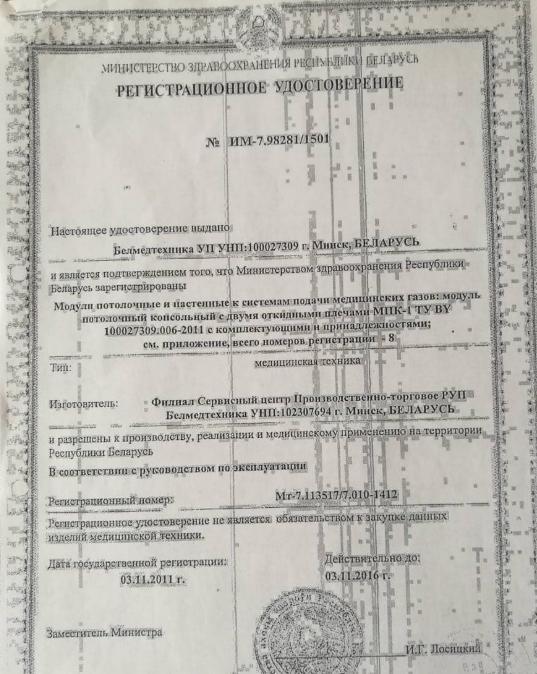
In October 2019 ex Deputy Minister of Healthcare was sentenced to 6 years in prison for bribes, but he spent only 3 years in jail. According to unofficial data, the penalty was removed.
Siarhei Satsuk, the co-founder of “Diary” web-portal, was one of the first to start investigating the schemes of irrational use of budget funds in procurement of medical equipment.
“There’s a whole procurement system of buying medical equipment, components and medical tools. The market is divided between specific companies. No-one from the outside can’t get in there”, - says Satsuk. Turned out, allegedly, these investigations took him his freedom, although officials say that he was caught bribing.
However, it’s impossible to say that middle-men disappeared and the prices went down after the “doctor’s plot” investigation. The State Control Committee of Belarus said that grey schemes keep appearing in tenders and state procurement. Eventually, about a dozen of cases when the prices of medical equipment were driven up multiple times came up in 2021 alone.



